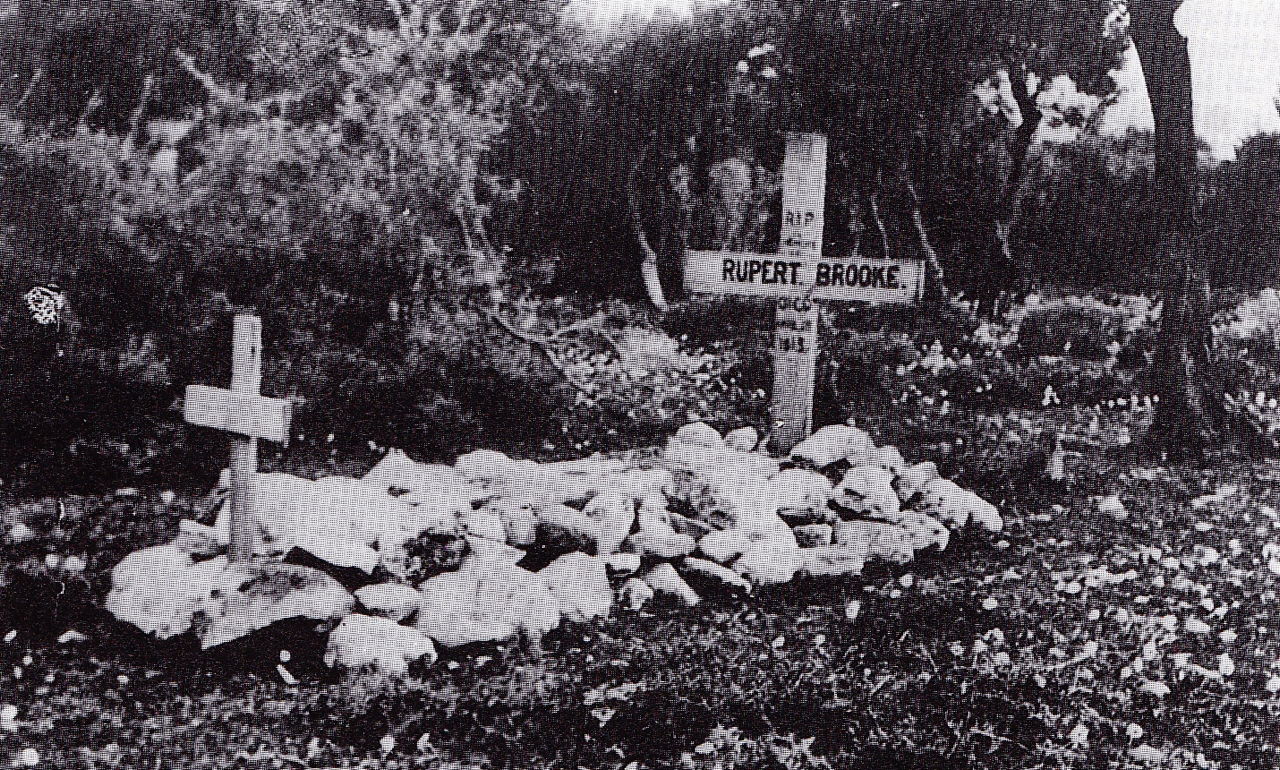
In the next three posts, I shall deal with War Poetry. I just want to show how such a straightforward topic, like war, can be treated in such different ways. I shall look at three poets, who sadly all died during the treacherous trench warfare in Northern France, during the First World War. I shall analyse three poems, one for each poet. They are Rupert Brooke, Wilfred Owen and Isaac Rosenberg. They all wrote about the same war, but their perspectives were very different.

I shall start with Rupert Brooke (1887-1915) and his poem The Soldier. This poem perfectly reflects Brooke’s positive view of war. He believes in the importance and romance of Patriotism. Dying for one’s country is an honour, almost a goal to wish for:
If I should die, think only this of me;
That there’s some corner of a foreign field
That is forever England.
So, dying at war in a foreign land is a great thing, because your corpse would then be buried in that land and upraise it. The English body will turn to dust and that dust would make the earth richer:
… There shall be
in that rich earth a richer dust concealed;
One can hardly believe that death can be aggrandised and romanticised to this point; especially the brutal death in the windswept cold trenches of places like the Somme.
 |
| La Somme |
The short poem (actually a traditional Petrarchan sonnet) then meanders off to praise the glory of England and all that is English. The very image of England that transpires is that of a generous mother who bestows all her riches, both material and spiritual, onto her children. Brooke totally ignores the ugliness of war and the horrors of death. He uses mellifluous words with romantic connotation like, Eternal, heart, dreams, happy, peace or heaven. No wonder the poem has been defined as a “frank and unashamed piece of patriotism.”
If I should die, think only this of me:
That there's some corner of a foreign field
That is for ever England. There shall be
In that rich earth a richer dust concealed;
A dust whom England bore, shaped, made aware,
Gave, once, her flowers to love, her ways to roam,
A body of England's, breathing English air,
Washed by the rivers, blest by suns of home.
And think, this heart, all evil shed away,
A pulse in the eternal mind, no less
Gives somewhere back the thoughts by England given;
Her sights and sounds; dreams happy as her day;
And laughter, learnt of friends; and gentleness,
In hearts at peace, under an English heaven.
Although Brooke died during a commission in the Royal Navy, it is interesting to note that the poet never experienced battle first hand. He developed blood poisoning from a mosquito bite and died shortly afterwards.

No comments:
Post a Comment